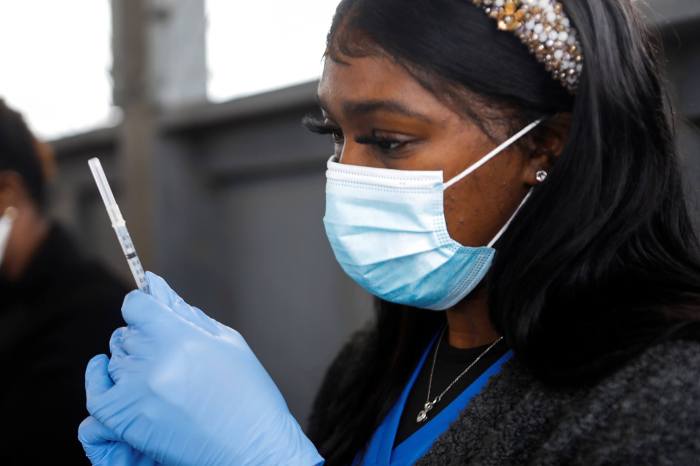Activist, writer and director Regina Taylor has launched a special project that is made to empower voices and reexamine, redefine, and reimagine what it means to teach and educate youth.
Taylor learned to write from her mother when she was very young. The Dallas native’s mother was a teacher and felt it was necessary for her daughter to learn how to reclaim her own voice.
“She thought it was really important to empower me to write my own story, to create my own narrative. As we were born into this world, people want to name and claim you, and she wanted to empower me with that gift,” said Taylor. “I’ve been doing that my whole life, naming myself, creating and recreating myself as I go along, and understanding that others people’s eyes on me give their our histories and narratives as I go. But I claim myself as I move forward.”
Taylor went on to graduate from Southern Methodist University (SMU) and as time went on, she became very engrained in the activist space and writing and creating pieces within activist movements. When the pandemic hit in 2020, Taylor wanted to create something that would allow people to lift their voices.
After partnering with SMU, in October 2020 Taylor released “the black album,” a platform where young artists can create and produce work that speaks truth to power. Out of the project came “the black album.2020.resistance,” a virtual play created in response to a larger conversation about systemic injustice and its ties to racial identity.
“I was talking to some folk at SMU about how we continue to teach and create,” said Taylor. “I offered to write a play based off of themes of what was erupting in the year 2020, such as George Floyd, the very incendiary presidential race, violence that was spreading across this whole country fueled by people’s fears.”
The play was rehearsed over Zoom and presented online. Taylor says that she wanted to expand further and find ways for people to connect and share ideas during the pandemic. What came out of it was “the black album mixtape,” where artists, students and more have posted videos discussing their experiences and reminding others that they are not alone.
“That then led me to get these relatively current things to students, for them to create their own pieces according to their own disciplines, according to their own passions,” said Taylor. “How do you want to speak about it in a time where we dare not be silent? In collaboration with SMU, a website was built for people to share their ideas, how did we get there, and claim, imagine, dream of ways strategies of ways to get a better outcome in the future.”
The project has received a lot of positive feedback with multiple video submissions, as well as photos and podcasts that have been shared from people across the country. Taylor continues to encourage others to submit something to “the black album” initiative. At the end of the spring semester, there will be an award ceremony where those who submitted to the platform can win a $500 prize.
“Everyone is welcome, and on this platform, it gives a level ground to students, professionals, laypeople, and the community to congregate and share their ideas and work,” said Taylor. “We got amazing feedback from the play, people are quite generous and wonderful in sharing now their work, and we have pieces from all over the country in different shapes and forms.”
Taylor and SMU have hosted a number of events surrounding “the black album” project, including a conversation with theologian, educator and civil rights icon Ruby Sales, moderated by Dr. Wilmer Leon; and a conversation about activism and theater over dinner celebrating the launch of “mixtape” with moderated by Theatre Forward’s Carl Sylvestre and featuring Alliance Theatre’s Mellon Playwright in Residence Pearl Cleage, Executive Artistic Director of Actors Theatre of Louisville Robert Barry Fleming, and Oregon Shakespeare Festival’s sixth artistic director Nataki Garrett. There are a few more events on the agenda, which can be viewed at smu.edu/theblackalbum/events.
For Taylor, having these conversations is incredibly important, especially now.
“The shifts that are happening in theaters in terms of leadership, equity and inclusion, are things that we’ve talked about before,” said Taylor. “But now we are looking at other initiatives that are hold theaters accountable in terms of how we serve our community.”
Taylor says that this time is a period of reflection and activism. Though she herself had her own fears and anxieties going into the pandemic, her time at home helped young writers, artists, students and activists to express themselves in ways that they couldn’t before, especially when they felt like they were alone in the pandemic.
“I think a lot of people are sitting in the dark right now. I think 2020 has been rough, 2021 has been eye-opening,” said Taylor. “Sometimes we’re on the floor and we think we’re alone in this, I think it’s important for people to share their experiences and let people know that there is always light that surrounds them, even when you feel like you are in the dark right now. Wanting to embrace even in terms of communication shifts, sometimes it feels that there are people holding close and dear to old ways. They’re obstacles that you are challenged with. But you know that with faith, hard work and determination you can contact those who are intended to do be the recipients of a gift of empowering one’s voice and that’s what we’re doing.”
Click here to view submissions for “the black album” or to submit your own, or visit smu.edu/blackalbum for more information.




































